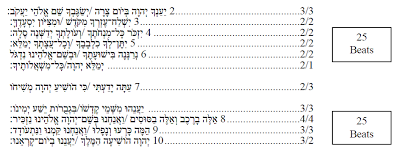NASB (Verse 1 in the
Hebrew Bible is the Superscription)
1 May the Lord answer you in the day of trouble!
May the name of the God of Jacob set you securely on high!
2 May He send you help from the
sanctuary
And support you from Zion!
3 May He remember all your meal
offerings
And find your burnt offering acceptable! Selah.
4 May He grant you your heart’s desire
And fulfill all your counsel!
5 We will sing for joy over your victory,
And in the name of our God we will set up our
banners.
May the Lord
fulfill all your petitions.
6
Now I know that the Lord saves His
anointed;
He will answer him from His holy heaven
With the saving strength of His right hand.
7 Some boast in chariots and some in horses,
But we will boast in the name of the Lord, our God.
8 They have bowed down and fallen,
But we have risen and stood upright.
9 Save, O Lord;
May the King answer us in the day we call.
Effect of the Metric Center
Psalm 20, a Royal
Psalm according to Westermann (The Psalms: Structure, Content & Message, 109) “are those in which the king plays a role.” See also Westermann, Praise and Lament in the Psalms, 245. Verses 1-5 consist of a prayer for the congregation. Following this point in the Psalm an Oracle
of Salvation (Called also an “Oracle of Assurance” by Yates in The Wycliffe Bible Commentary, 503)
may be assumed to account for the change in conviction and tone of the
remainder of the poem. At verse [6a English]
Craigie, Psalms 1-50, 186, writes, “The declaration begins with the word now (עתה), which is the
emphatic term, indicating a turning point in the ritual. What prompted the
turning point is uncertain: it may have been the completion of the sacrificial
acts and accompanying ritual, or it may have been the receipt of a positive
oracle in the person of the declarer.”
Verses 6b-9 [English] express absolute confidence in the Lord’s deliverance.
Summary
Summary



